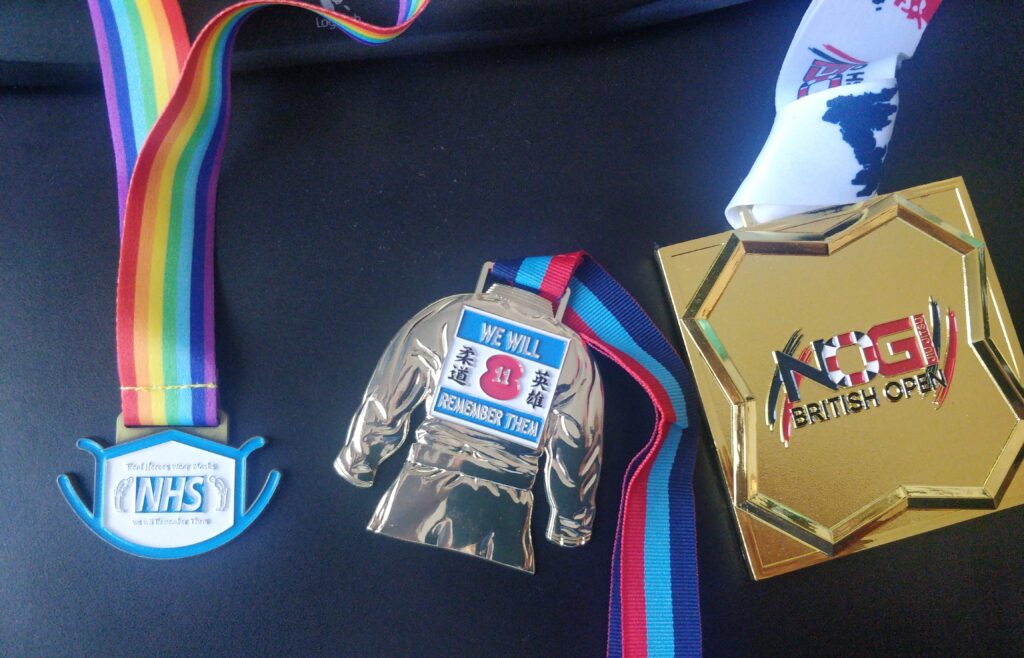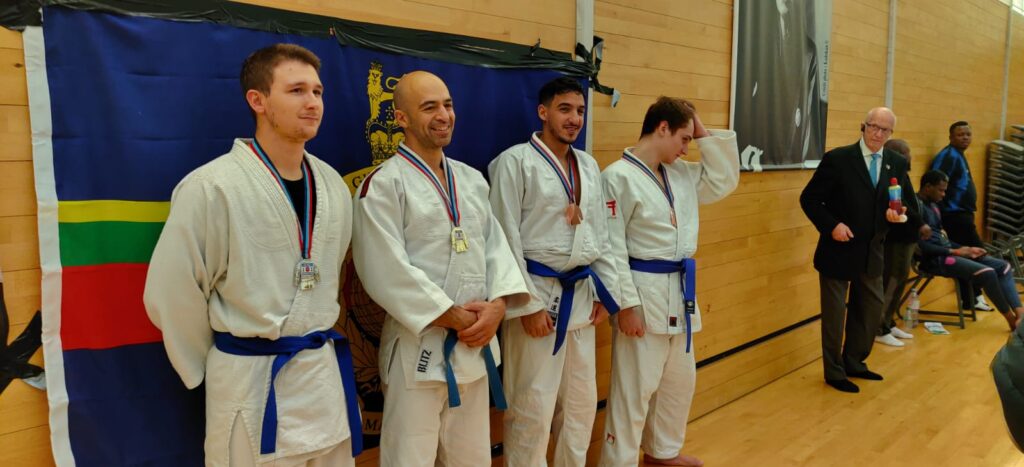
Given my earlier 5+ month layoff following distal bicep tendon surgery/reattachment I signed up to a regional competition to rebuild my confidence again.
The competition was this past Sunday.. The day couldn’t have started worse what with my motorbike deciding it wouldn’t start (battery trouble). Given time was ticking I jumped into the family car and drove the route to the competition venue (Dartford) via largely empty roads.
Competition nerves
Whoever pitches up for these things is a legend in their own right damnit! They’ve got something to prove (to themselves/their club/their partner/mates etc) and they’re putting themselves on the line. Even the most seasoned competitors will find it nerve-wracking – no doubt about it.
Performing under pressure… Club randori nights will never be on the same level as performing for a gold medal or for your black belt. Exposure to this pressure is incredibly beneficial for life, particularly the way the competitor is faced with the dissapointment of defeat and/or the jubilation of victory within minutes. Kano was onto something when he made it a 1-1 competitive sport like this.
As per the human condition it’s very easy to get caught up in it all and tie performance with self-worth. To combat this I find I need to constantly remind myself of it as a learning experience more than anything else… Learning and further crafting my own Judo. There’s always something to hone/improve on with this sport (like any sport really). Building, improving your Judo, often even rebuilding it when tactics or strategies completely fail.
The Fights
My previous Judo competition involved 6 fights. After the fifth fight I ran out of water – that was an ordeal! This time round I only had 3 fights given my weight division had 4 players including yours-truly. This proved to be fantastic as the fights were almost back to back and they didn’t last long. I also had some intra-workout powder with electrolytes which ensured I wasn’t too far gone.
In hindsight, the first chap I fought with was probably the hardest purely because he dominated the grips and held on for dear life. He didn’t do much with them which ended in him being countered. There lies the paradox – when you’re stiff/rigid your ability to change positions and move is hugely compromised. The good players are able to rapidly change their stiffness/softness. Happily I didn’t see this so much in this or the remainder matches of the day – perhaps it’s the effect of 2nd kyu level competition?
I had only one clear throw which ended as a wazari unfortunately. The majority of my fights ended on the ground. Given I’ve spent more time practicing BJJ in my surgery-enforced off-time this played well with the action. I held two chaps down in fairly basic hold-downs – I wasn’t planning on keeping them for the full 30 seconds but rather to ‘cook’ them. Luck fell in my favour and it ended up going the full length. My last match ended in an armbar. He tapped, the referee didn’t see it but I released the pressure anyway. A small kerfuffle ensued as to whether he tapped or not… Given my recent arm surgery I wasn’t prepared to crank it any further and give that chap any of the suffering I faced this year. I also felt him out and was confident I could take him if the action were to proceed.
Playing back the videos
Nothing replaces the value I get from playing the videos from my fights. My adrenalin and testosterone affect too much of my better judgement. I see the opportunities I’ve missed, the gripping patterns I didn’t do, the mistakes I (and they) made. It’s brilliant to see, as well as the improvements to some of the previous mess-ups I’ve done in the past.
The hardware

These end of year Dartford events are held to raise money for charity. Last year’s event was for the NHS and this year was for the “Help for Heroes” charity. The medals are getting bigger and they’re getting more in-line with the extravagant size of the BJJ ones (see an example on the far left). I have a few medals from when I competed as a youth and they’re far smaller.
At the route we’re headed, the competition medals of tomorrow will be so extravagantly heavy we’ll all have neck muscles The Rock would envy when sporting them.
Competition Crew
My mate Andreas competed also, fighting valiantly and impressively in his first competition. I’m really glad he came out as it gave him some great experience and also, selfishly, boosted my confidence by being on the sidelines cheering me on.
A contingent from my Westcroft club were there too: Neil, James, Rose and Dan. Neil and Rose competed but I didn’t get to see Rose, Neil won his category which was great to see.
Dan really impressed me no end. He’s the son of our club coach, serving in the role of our team coach on the day and he did a stirling job of giving me the right guidance without flustering me. He also ensured my name was registered in the right places. There was an administrative hiccup where the little bit of paper with my name on it was lost and I wasn’t registered in the system. If it wasn’t for Dan undertaking that due diligence of his own accord I would have missed my fights altogether. A true legend. This leads me onto the contest officials….
Contest Officials
All the contest officials are volunteers (from what I understand) and they’re giving up their weekends to make sure the event is a success. What’s interesting is the officials demographic – the majority appear to be over 60. There’s obviously a wealth of experience from them and certainly they have a lot more free time to give up than the average working age adult. Andreas tells me weightlifting competitions are similar with officials a lot older than the competitor age brackets.
I’ve read there’s a lack of available contest officials in the sport unfortunately given the significant time commitment. This will be the subject of a future article as I do think more people should get involved.
Conclusion
It’s a false economy to determine your ability amongst the people you fight with week after week at your local club(s). Competitions are a great place to learn your failings by pitting yourself against people who are complete unknowns to you. More interestingly, if you’re anything like me it’s a great place to see some great Judo and meet like minded enthusiasts!
